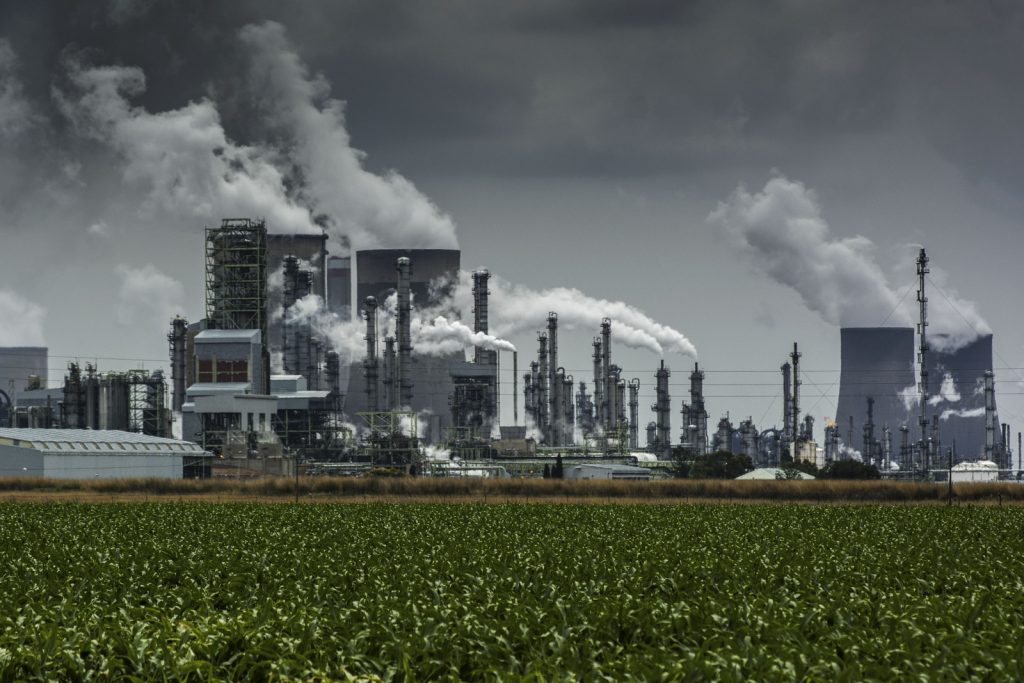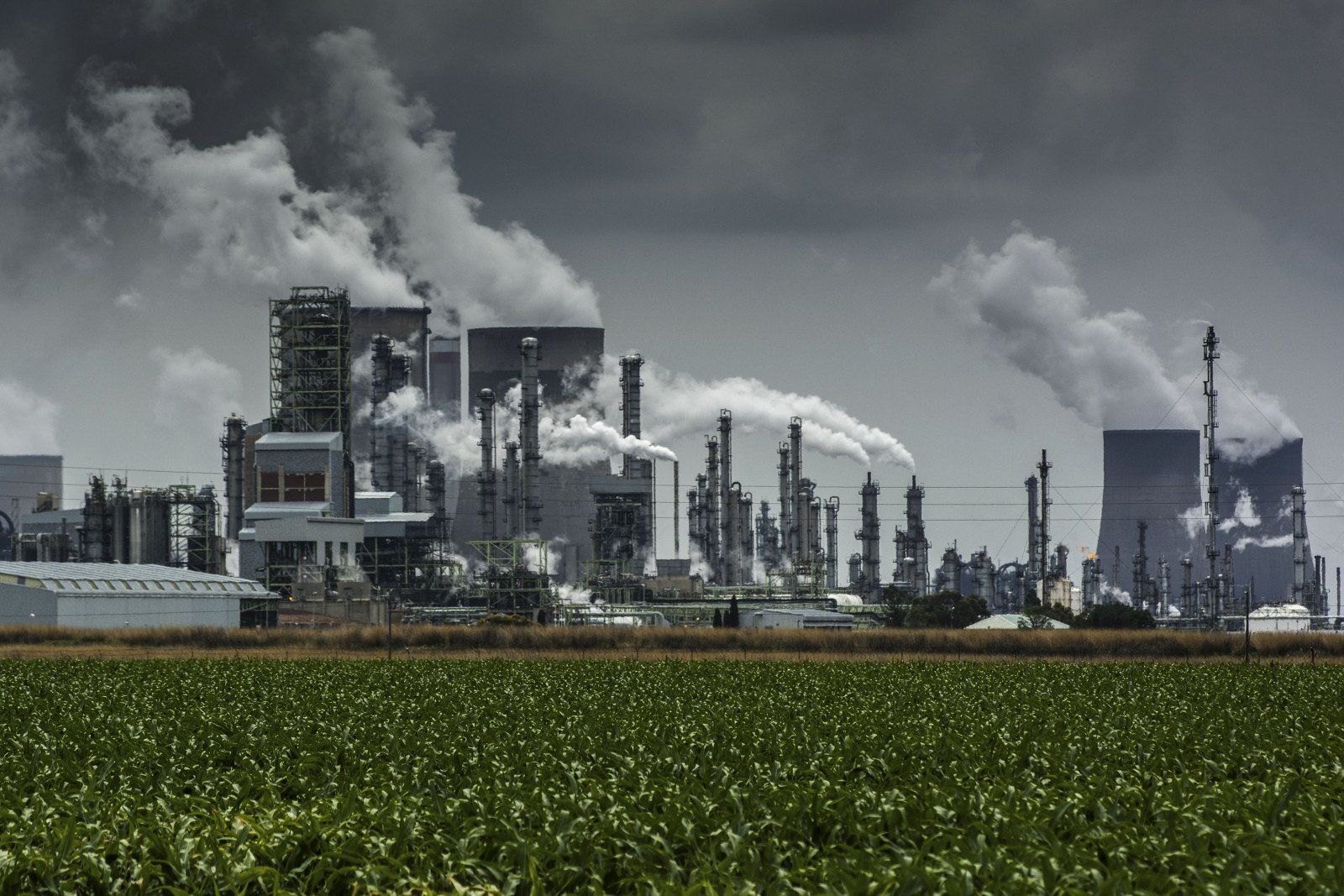[ad_1]

Burning fossil fuels makes the Earth warmer, causing weather patterns to change.
For the past 20 years, Khehla Mahlangu, 52, has barely been able to walk a few metres before running out of breath.
He lives in eMbalenhle, a township on the edge of Secunda in the Mpumalanga Highveld.
“It’s the effect of air pollution,” he says. “Breathing becomes harder each day.”
eMbalenhle falls within an area that the government is prioritising for improving air quality. Mpumalanga has some of the dirtiest air in the country because of the many large coal-burning industries here, including Sasol’s petrochemical plant and three Eskom power stations within an hour’s drive of the area.
People like Mahlangu who live in places with dirty air, breathe in harmful gases and particles that damage their lungs and increase their chances of developing health problems such as lung infections, chronic obstructive pulmonary disease (COPD, in which the airways narrow and so make someone short of breath) and even lung cancer.
And now climate change is making this situation worse.
People in poorer countries, who generally have a much smaller carbon footprint than those in richer regions, are worse affected by climate change. This was repeated at the African Climate Summit held in Kenya earlier this month, where the continent’s leaders signed a declaration to produce more renewable energy such as solar or wind-powered electricity and ensure factories and businesses are run in ways that are less harmful to the Earth.
And in the past couple of years, the social inequalities of climate change in, rather than between countries have become all the more evident.
The bigger someone’s carbon footprint, the more greenhouse gases their lifestyle adds to the atmosphere through activities that burn fossil fuels, such as driving a car, using coal-fired electricity and air travel. And the more greenhouse gases (such as carbon dioxide, methane and nitrous oxides) our lifestyle releases, the more we contribute to global warming and the resulting change in our planet’s climate.
Global warming happens when carbon dioxide and other greenhouse gases build up in the atmosphere, almost forming a blanket around the Earth. This traps heat in the atmosphere and because the gases can take years to break down, the air close to the planet’s surface gradually becomes warmer.
This causes weather patterns such as rainfall, wind conditions and temperatures to change. Over time, we experience more intense climate events more often, such as heatwaves, floods, droughts and cyclones. Disasters because of these severe weather events become worse and more common, and damage or destroy farms, homes and services like power lines and water supply systems.
People in developing countries, who are generally poorer than those in richer regions, suffer more from the harsher weather, as they are less likely to recover from natural events that damage their homes, livelihoods or their health.
Mahlangu has experienced the social injustice of climate change first hand.
Gasping for breath
Mahlangu has lived in eMbalenhle all his life and worked as a manual labourer in the chemical industry for many years.
But for the past 17, he’s been unemployed after having to quit his job because of the state of his health — with breathing becoming more and more difficult for him over time.
He’s never been told what is wrong with his lungs, though, and is one of nearly 200 000 people who live in eMbalenhle, whose nearest government hospital is at Evander, about 15 kilometres away. He’s also one of at least 106 000 people with poor lung health linked to coal-burning operations in Mpumalanga.
But, he says, “nothing will happen when I go to the hospital. I’ll just sit there for hours and wait, and then they’ll refer me to a hospital in Witbank [eMalahleni.]”
eMalahleni is more than an hour’s drive from eMbalenhle, a journey that Mahlangu cannot afford. Unemployment is common in the township, where most households survive on less than R2 500 a month.
And so starts a never ending loop of social inequality, which climate change will exacerbate. Not having money to escape the poor environmental conditions means you get sick, and being so sick that you can’t work means you need good medical care. But because you can’t afford to go to a private doctor, you have to sit in line at a state hospital, many of which are badly run and have too little funds, staff and medicines.
It’s ironic, he says. “When you apply for a job at one of the coal operations, they require you to be fit. They make you do some exercises, and if you aren’t physically fit, they don’t take you.”
Heat, health and hazy air
People with lung problems like asthma, emphysema (a condition in which the tiny air sacs in the lungs are slowly damaged) or long-lasting inflammation of their airways — and which are often triggered or made worse by breathing in dirty air — will probably struggle to breathe even more as weather patterns change.
On the Highveld, it’s not uncommon for night time temperatures to drop close to zero in winter and in summer the mercury can easily push towards 30°C. Very cold or hot conditions make it difficult for people with lung ailments to breathe because the moist lining of the small airways become inflamed and narrow.
As the Earth gets hotter — the average temperature on the Highveld is expected to increase by up to 4°C by 2050 — this could worsen, especially because of the high levels of air pollution.
In 2021, a study by researchers at the University of Pretoria showed that,between 2011 and 2016, more people in Secunda were admitted to hospital with lung issues on days when the temperature rose above 15°C and there was more sulphur dioxide in the air than usual.
Coal burning not only releases carbon dioxide but also sulphur dioxide. Breathing in sulphur dioxide can irritate the lining of the airways and make them spasm and close up.
The researchers also found that on cold days, when maximum temperatures were below 15°C, there was a surge in admissions of children younger than 14 with lung conditions. The combination of cold air and pollution from sulphur dioxide seemed to make these children sicker. This is because the amount of sulphur dioxide in the air peaks in winter and children tend to breathe deeper than adults, so they take in more of it.
As climate change continues to make the planet hotter, the average temperature in the Highveld is expected to increase by as much as 4°C by 2050. The country will probably get much drier, with hot days — days with maximum temperatures over 35°C — becoming more common in the next 75 years. In Mpumalanga, veld and forest fires will become more common.
Fires are particularly dangerous for people with lung problems. These fires release particle matter, which are tiny bits of solid materials, into the air. The particles are so small that they get deep into the lungs, where they damage the tiny air sacs.
Large-scale coal burning also releases particles like these into the air. When they mix with sulphur dioxide, they form sulphate aerosols — tiny bits of sulphur-containing matter that hang in the air and create a haze. These aerosols could scar the lung tissue, make the lining of the tiny air sacs thicker or cause them to become stiff — all things that make it more difficult to breathe.
How much heat can we cope with?
For people with lung diseases such as asthma and COPD ( a group of lung diseases), the chances of suffering or dying from heat stress increase when it’s extremely hot, like during a heatwave.
A 2021 study published in Lancet Planetary Health showed that the body is most comfortable in temperatures between 17°C and 24°C. Above 40°C it starts getting difficult to cope with heat, but it becomes worse the more humid air gets — from 35°C and up, heat can be lethal.
As the atmosphere continues to get hotter, causing weather patterns to change and become more extreme, things for people like Mahlangu, who live in areas with dirty air, will probably worsen. This cycle of climate injustice will continue to affect the people who can afford it least the most.
Says Mahlangu: “We’re getting sicker every day but no one is listening to us.”

This story was produced by the Bhekisisa Centre for Health Journalism. Sign up for the newsletter.
[ad_2]
Source link



